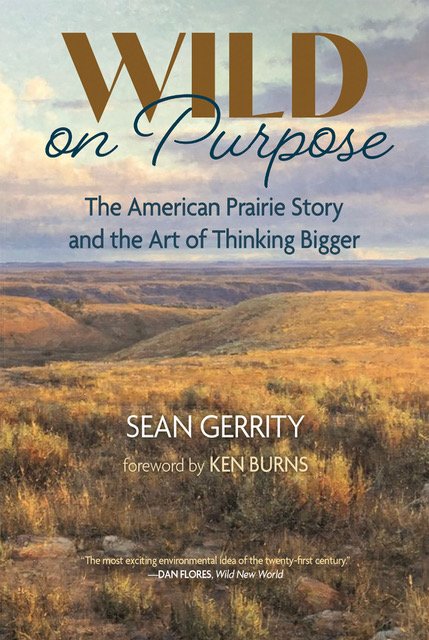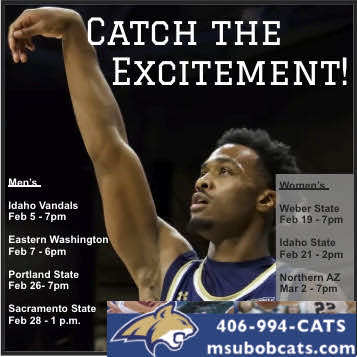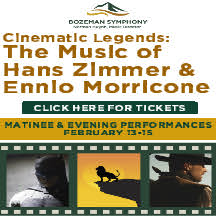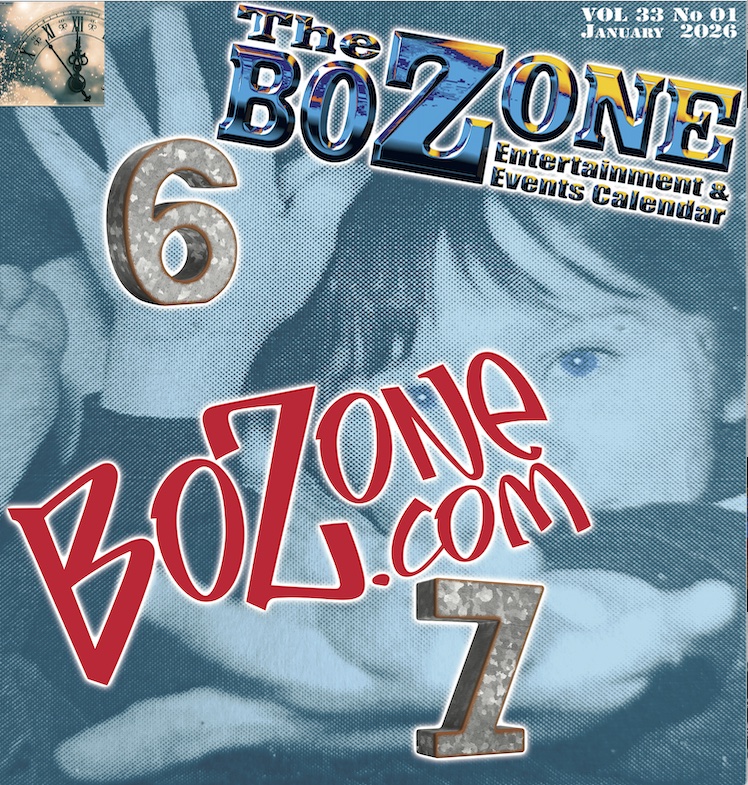 Montana native and Austin-area transplant Tessy Lou Williams’ passion for music and songwriting began early in her life. Her parents, Kenny and Claudia Williams, formed the core of a western musical legend in Montana—the band Montana Rose. Fast forward to 2016, fiddle-player Bryan Paugh, Mike Singer on banjo, and dad Kenny on doghouse bass make up her band, the Shotgun Stars, while the woman herself lends her sweet vocals and guitar to songs that tell the story of life lived in the west. Returning home from Texas this winter and in anticipation of their upcoming area performances in January, the Rolling Zone spoke with Tessy Lou about maintaining the family legacy, while creating music she can call her own.
Montana native and Austin-area transplant Tessy Lou Williams’ passion for music and songwriting began early in her life. Her parents, Kenny and Claudia Williams, formed the core of a western musical legend in Montana—the band Montana Rose. Fast forward to 2016, fiddle-player Bryan Paugh, Mike Singer on banjo, and dad Kenny on doghouse bass make up her band, the Shotgun Stars, while the woman herself lends her sweet vocals and guitar to songs that tell the story of life lived in the west. Returning home from Texas this winter and in anticipation of their upcoming area performances in January, the Rolling Zone spoke with Tessy Lou about maintaining the family legacy, while creating music she can call her own.
RZ: Hey Tessy, how are you doing? TL: I’m good. How are you?
RZ: Good! Thank you so much for talking with me today. TL: Of course. RZ: Describe for me the Tessy Lou sound—that of yourself as an artist and as a member of the band. TL: We’re definitely a country band. I play acoustic guitar, my dad (Kenny Williams) on the stand-up bass, and Bryan Paugh, our mandolin and fiddle player—they were both bluegrassers for a long time so there’s a hint of [that]. It’s definitely an Americana sound. It’s got a combination of several influences. Lately we have been playing with a bigger band [with] an electric guitar and pedal steel.
RZ: Your dad is in the band. How have your parents contributed to your musical upbringing and career? TL: Well, that’s all my parents did. I was definitely born into the world of it. It really did help having my dad in Texas with me because he’s done it his whole life. I was just starting out, so he was able to help me figure out and understand a lot of the business aspects of it and help me get stronger [with] playing. I’ve played instruments my whole life. My parents had us in music lessons—I played piano at four, started cello at five, and all throughout school I played instruments. I’ve never been without music in my life. Mom and dad’s history in the music business has made it easier to make connections with certain musicians and writers. I’m very fortunate in that aspect. RZ: How awesome that it’s such a family affair. TL: It is! It’s great.
RZ: You split your time between Montana and Texas. Can you make any instant comparisons to the music scenes? TL: Austin is the “Live Music Capital of the World.” Any bar or venue you walk into, they’ll have about four bands a night, seven days a week. You’re never without music. Whereas in Montana, typically music only happens on the weekends—the main reason being, the entire state of Montana has hardly any more people than the city of Austin. The people and the demographics are so much more here. Texas in general is a very music-based state. That being said, my parents were able to raise a family of five in Montana just playing music. You can make a little bit more money because there are less bands, whereas in Austin you’ve got so many bands. If the venues paid the bands as much as we get paid in Montana, they would all lose money because they’ve got so many people coming in.
RZ: So much music. TL: And Texas is very appreciative of all kinds of music, but so is Montana. What I learned being here is the two places are not that different. [They’re] both such western states that have a long history together. Lonesome Dove didn’t totally make that story up. The people and the lifestyles are very similar. Granted, Austin is kind of a world of its own because you have so many transplants. Like they always say, “keep Austin weird.” But the amount of people is the main difference.
RZ: What does a Tessy Lou show look like in terms of covers versus original music? TL: It’s about half and half—or sixty/forty. We like to play songs people know, but I play a lot of songs that Montana Rose did that were my favorites growing up. We do some of my dad’s songs, we do several Kevin Welch songs. Some of the covers we do aren’t exactly famous songs, but a lot of people might know them from my parents doing them. We try to do songs from friends of ours, and I’ve got a long list of songs myself! Try to do all the favorites. RZ: Gotta keep people on the floor. TL: Oh yeah.
RZ: Tell me a little bit about your albums, Leaving Montana and Somewhere in Texas. TL: Leaving Montana was made at Blue Roan Studios there in Bozeman at Peach Street with Jason Wickens and Doc Wiley. It was produced by our friend Tom Ayers. That one is more of a live album. We sat in a room together and laid the songs down. Mike Singer came in on a banjo after we recorded and we dubbed that in, Brook Langton sent us his [track], and we did the harmonies after the fact too. The main core of the song—the vocals and all—were recorded all in one room. It’s a little more raw in that aspect. They’re all songs that I’ve written or co-written. And it was a really great experience. The guys at Blue Roan are awesome and so easy to work with. We did end up mixing that one in Nashville—my first mixing experience. The title was really perfect, because I had just left Montana. We left in November of 2010 and came back [during the] summer of 2011 to record that album. There were a lot of emotions in that, first time being back in Montana after I moved.
RZ: Oh I’m sure. How about the follow-up album? TL: We did Somewhere in Texas in Austin at [the] Cedar Creek studios. It was produced by our friend Corby Schaub. [There’s] a little bit more of a production on that. We did the parts separately and definitely spent a little bit more time piecing together each song. That record is about half original, half covers. We had more players on the second album and [the songs] were a little bit more diverse. RZ: Have you been writing anything new for a possible future album? TL: What we’ve been doing lately is what we call our “Texas Sessions.” After we came out with the second album, we decided to then release singles instead of a full-length album. There’s more immediacy for music these days. When people hear songs, they want to get that song. Albums really aren’t as valued as they used to be. Everybody can get everything online. We’re all victim of it. We hear a song and we just go online. You may never hear the full album.
RZ: That is absolutely the case. TL: After we do several of those, we might come out with a little EP of all those songs. It’s been really fun doing that because we’ve recorded those with Tommy Detamore out at Cherry Ridge Studios and [are] able to spend a little bit more time. We’ll go in and spend the day recording two or three songs. We’re able to spend more time thinking about those particular songs instead of just a full-length album. So when we go in with Tommy, if we end up getting just one song done that day, so be it. It gives us a chance to really focus on a particular song or two. That’s been fun because there’s not really a time limit on that. You don’t have a CD release date, we have these songs in the queue and we’ll release them every few months or so. And [Tommy’s] great to work with. We’ve been really fortunate with the people that we’ve met down here in Texas. Great musicians and engineers. Just great people in general. It makes it a lot more fun!
RZ: How have your fans and fans of country/Americana responded to your music? TL: One of the coolest things is that musicians are so supportive of each other. We’ve created a huge fan base of fellow musicians, as well as everybody else. It’s really humbling to be able to play a show somewhere and you’ve got Walt Wilkins walk up to you and he’s passing around the tip jar for you, or you get a pat on the back from all these people you idolize. It’s such a big family. You know the music world, once you’re in it, it’s so small. In that too, you end up with mutual fans. People seem to really like what we do. We have a little bit more classic of a sound as far as country goes. That’s kind of refreshing for some people. And what we do, it’s pretty raw. It’s really real. Not saying that a lot of people aren’t that way, but we focus on each and every song. It’s more about the song than it is what I’m wearing.
RZ: You’ve got to keep it relatable. TL: That’s kind of what we do, try to make everybody get it.
RZ: If you speak to your audience, they’ll keep coming back. TL: We’ve been playing at Poodies Hilltop (in Austin) for five years now and we’ve kept the same fan base plus added for [all those] years. The same people have been coming every Sunday for five years and that’s pretty amazing that they haven’t gotten sick of us yet. Everybody is very accepting of musicians. Up in Montana, same thing. Everybody is really proud of what we’re doing. It’s great to be able to come home and have people excited about what our next thing is. I’ll never stop coming back to Montana.
RZ: What might we be surprised to hear you either listen to or play? TL: We do do a few Aretha Franklin songs—she’s been my favorite since I was like six years old. The last couple of years, we’ve started doing Journey’s “Don’t Stop Believin’.” It’s really fun because it’s more of the acoustic style of that. Yeah, we try to throw some random things in there. Just our favorites, you know? We find a song that we like and I’m like, “Alright, let’s learn it.” And even when I write the song, I let the guys choose their own part. We’re pretty laid back in that way. You kind of get a fun end result. Nothing is exact. I’m not Aretha Franklin, I never will be. I love her, but when we do her songs they come out a little more bluegrass. We try to follow the main core of the song but still make it our own.
RZ: This question might make me sound like one from a high school counselor, but where do you see yourself in five to ten years? TL: Hopefully playing all over the world. Texas is great, but it’s not the end. I want to be able to play all over the country and go to Europe. Hopefully in five years, I’ll be writing more and have a song out there. At least one song out there, whether somebody else is doing it or we’ve made a hit on it. I really hope to be still doing what I do and be able to make a living at it. You can always survive with music. Music will always be there, it always has been. There is a certain job security in that, but how secure that is is always questionable.
RZ: You just have to keep getting on stage. TL: Exactly. You just gotta keep doing it. Get your 10,000 hours in and then get 10,000 more. Tessy Lou & the Shotgun Stars will be working towards that 20,000-hour goal with a busy month here in Montana. Catch them first at Wild West Pizzeria in West Yellowstone on Friday, January 6th at 9pm. They’ll team up for a dual show alongside local country musician Sean Devine at The Attic in Livingston on Saturday, January 7th at 8pm. Then head over to the Pony Bar on Sunday, January 8th for a set beginning at 6pm. The gang will play back-to-back shows at Chico Hot Springs on Friday and Saturday, January 13th and 14th at 9pm each evening. They’ll return to Pony on Sunday, January 15th for another 6pm performance. Tickets for the January 7th show with Sean Devine are available for $12.50 in advance at Whiskey Creek Saloon and Sax & Fryer, and online at www.ticketriver.com/. Learn more about Tessy Lou & the Shotgun Stars and listen to some of their music at www.tessylouwilliams.com/. “C’mon boys!” •







